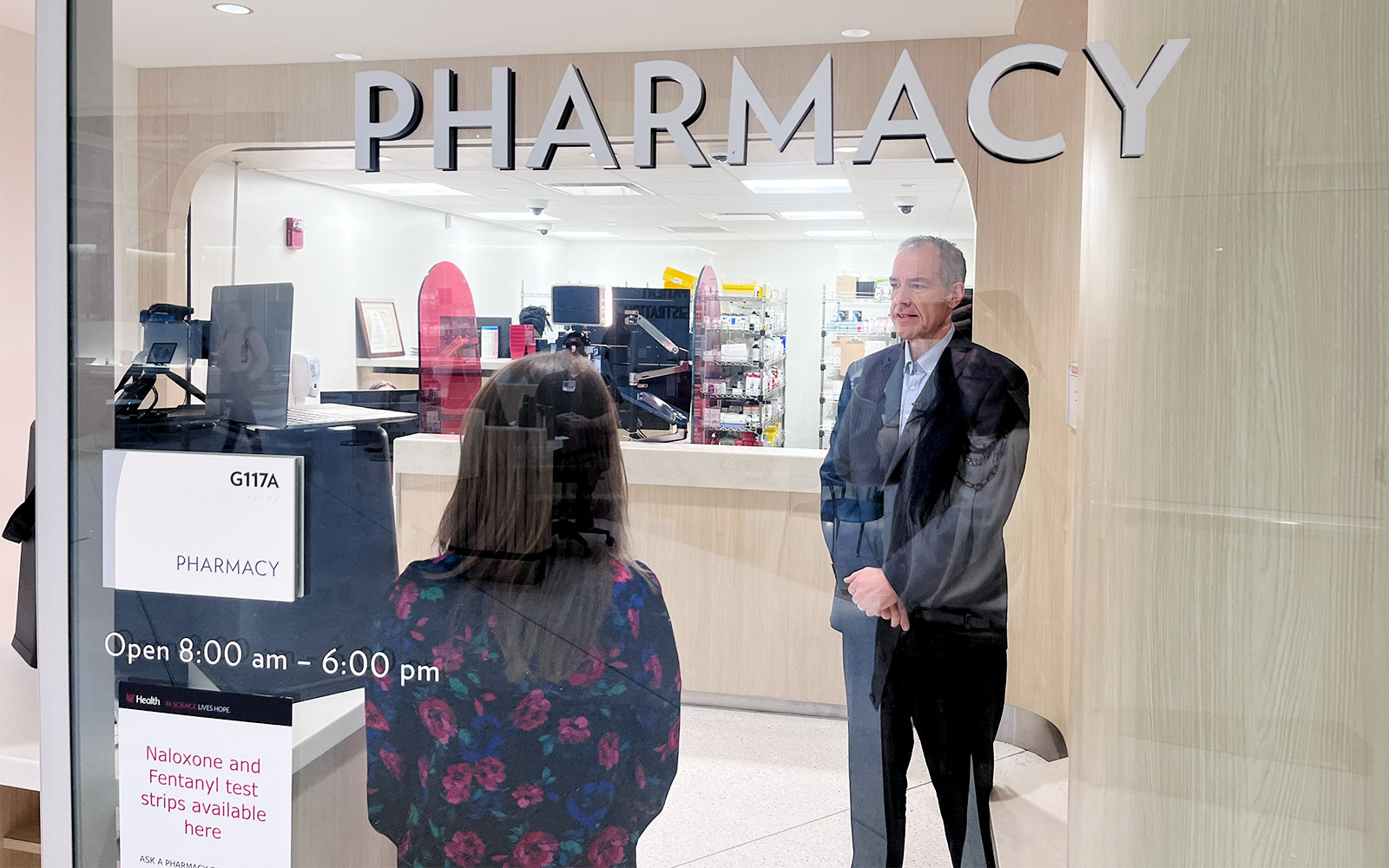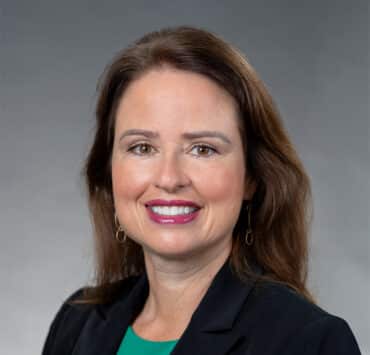When Jeffrey Akers was on the front lines as a clinical pharmacist early in his career, his grandmother was admitted to a hospital with cellulitis. Subsequently, Akers believed that his grandmother was put on the wrong antibiotic therapy to combat her illness. He already had a good relationship with the physician and thus politely explained the situation, requesting a change to her medications. The physician complied and his grandmother became well, so she was discharged.
That experience still informs his work as the vice president (VP) of pharmacy at UC Health today.
“Not every grandmother or grandfather that comes to a hospital has a grandchild that’s a physician or a pharmacist,” Akers says. “I realized that it was my responsibility as a clinical pharmacist to look out for all those moms, dads, grandparents, and children who may not have that luxury. Every decision I make, I try to keep them in mind.”
Akers, a board-certified pharmacotherapeutic specialist, came to UC Health in September 2022. It’s only the third job of his career. Previously, he spent almost nine years as the clinical pharmacy coordinator at Pikeville Medical Center and twenty-one years as the CEO of pharmacy services at Appalachian Regional Healthcare.
“Healthcare is moving outside the hospitals. We need to create the same level of commitment to our patients outside of the hospital as we do for those inside the hospital.”
Jeffrey Akers
Now, UC Health’s reputation for care is well-established; its Level 1 Trauma Center, neonatal intensive care unit, and transplant expertise are well-known. In fact, Akers came to UC Health to help put its pharmacy operations in the same “best of the best” category. That effort is multifaceted but revolves around challenging the historical focus of how the organization approaches pharmacy.
“One of the messages that I brought to my team when I came here is that the future of pharmacy is ambulatory,” Akers explains. “We’ve been talking about this for twenty-five years now; healthcare is moving outside the hospitals. We need to create the same level of commitment to our patients outside of the hospital, as we do for those inside the hospital. Ninety-nine percent of a person’s healthcare experience is outside the hospital. That gives pharmacy many different opportunities to grow our ambulatory care pharmacy services. That’s the mindset we’re in right now.”
That said, those aforementioned opportunities run a wide gamut, from retail pharmacy locations and services to more specialized locations. Pharmacists can be placed on-site in clinics or be available for telehealth consultations. All these possibilities will ultimately serve patients better and, at the same time, provide financial growth for the pharmacy side of UC Health’s bottom line.
With that growth, Akers says more investment will need to be made in automation efforts across the board. By investing more in automation, the organization can redirect its talented staff to focus on patients instead of processes.
“Whether it’s refilling robotics in our retail pharmacies or delivering medications—even just simple automated processes—we need to push the envelope of those task-oriented functions that will allow our pharmacists to spend more time communicating and taking care of their patients,” Akers says.
The VP’s team also helps bring pharmacists into clinics to aid patients with their injectable medications. Pharmacists can talk patients through the process, help them get used to the routine, and focus more holistically on overall patient health. And Akers believes those interactions will help offset the possibility of adverse side effects and maximize the efficacy of administered medications.
“My people are well-seasoned and well-credentialed experts in their fields; they’re just an incredible group.”
Jeffrey Akers
Since coming to UC Health, Akers has yet to hear physicians reject the chance to have more pharmacists involved in the care process. He says UC Health clinicians understand the inherent value of having more pharmacists apprised of a patient’s health journey. It’s not too many cooks in the kitchen—it’s just another mode of support.
Finally, UC Health is looking to expand specialized clinics and pharmacists that have already proven successful at helping patients manage their HIV and related treatments. Akers says his team is looking to create similar outreach to aid patients managing hepatitis C, pulmonary arterial hypertension, gastrointestinal issues, and more.
Today, Akers is still the new face at UC Health. All his directors have over ten years of experience. However, the VP says he can’t speak highly enough of those at the company who helped him better understand the health system and its nuances.
“We’ve had some early wins, but I feel like we’ve just tapped the tip of the iceberg of what we can accomplish,” Akers says. “My people are well-seasoned and well-credentialed experts in their fields; they’re just an incredible group.” Perhaps those team members have been so willing to help because of Akers distinctive leadership style—one that separated him from other candidates that vied for the VP position at UC Health. “I want my team to know that I will always have their back. Loyalty is a big deal to me,” Akers shares. “And I know that my pharmacy family at UC Health [is] working every day to do their absolute best to help our patients.”
Verity Solutions is a leader in innovative, agile and authentic pharmacy services. Our Verity 340B® software platform, combined with our experienced account management team, provides comprehensive solutions for 340B management, including split billing, purchase optimization, contract pharmacy, specialty/hemophilia contract pharmacy, referral capture, and more. With increasing complexity and a constant demand for audit preparedness, it’s more important than ever to have the right solution… and the right partner. Verity can help you optimize the performance and agility of your drug purchasing and 340B program to realize significant savings.


